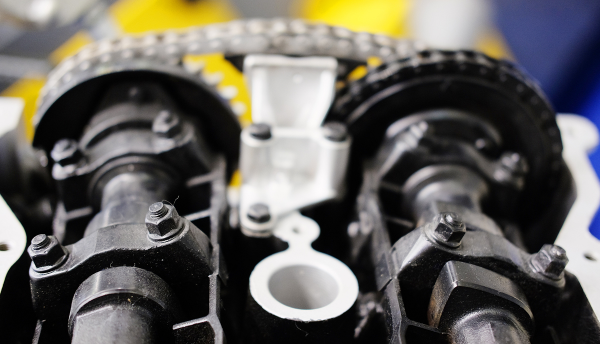
Malaysian carmaker Proton Holdings Berhad yesterday (18 January 2016) revealed an investment of MYR600 million (USD136 million) in research and development (R&D) of a new family of engines for use in its upcoming model line-up. According to a company statement, the automaker signed a tripartite collaboration agreement with British vehicle engineering firm Ricardo PLC and Lotus Group, which it owns, to develop and produce new engines in the United Kingdom. The engines will later be tested at Proton's Shah Alam facility in Malaysia, with an aim to launch it in its model line-up starting late 2017. At an event organised at Ricardo's facility in England, marking the start of engine testing and development, Proton CEO Dato Abdul Harith Abdullah said, "In most areas of R&D, there are always room for improvements, acquisition of knowledge, technology, and skills. This is where Proton takes it one step further in the enhancement of current skills and technology. About 200 engineers are involved in the development within the total period of more than 3 years. We have stationed 20 Proton engineers in England alongside Lotus and Ricardo engineers to develop this new engine family. Led by a project manager from Proton, the RM600-mil. development program will take 40 months to complete all 6 variants, with the first variant to be launched after 30 months by end of 2017. The design is leveraging on the co-owned [intellectual property rights] in combustion strategy with Ricardo that was developed earlier in 2012."
The engines developed under the company's latest plan will be Turbo Gasoline Direct Injection (TGDI) and Gasoline Direct Injection (GDI). These new six variants of engines are classified as:
- 1.0-litre three-cylinder variable valve timing (VVT)
- 1.2-litre three-cylinder VVT
- 1.3-litre four-cylinder GDI
- 1.5-litre four-cylinder GDI
- 1.3-litre four-cylinder TGDI
- 1.5-litre four-cylinder TGDI
Proton states that the new engines to be developed will be Euro VI emission-standard compliant and will emit lower carbon dioxide levels. The engines will be imported and tested in Proton's Malaysian facilities starting September 2016, and will be available to be used in all Proton cars from 2018 onwards. Proton further explains that the debut of its TGDI/GDI engines – coupled with a new torque converter continuously variable transmission that is concurrently being developed – will facilitate an average of 25% lower fuel consumption and up to 20% higher performance.
Ricardo is a British-based multi-industry engineering provider of technology, product innovation, and strategic consulting; it also develops engines, transmissions, vehicle systems, intelligent transportation systems, and hybrid and electric systems. The industries served are in transportation, defence, and clean energy, and the company has services that cover a range of market sectors including passenger car, commercial vehicle, rail, defence, motorsport, motorcycle, off-highway, marine, clean energy, and power generation and government. "The company has the facilities that are most suitable for prototype engine development and testing. With vast experience in the automotive consultancy business of 100 years and having the experience developing and working on projects especially on GDI technology on other global [original equipment manufacturers] from Europe, US, Japan, Korea, and China, we are honoured to be working with them," Abdullah further commented.
Outlook and implications
Traditionally, Proton has developed engines exclusively with design assistance from Mitsubishi and Renault/Nissan. In addition, Lotus has become involved in modifying engines and helping Proton develop its own range in recent years. This includes hybrid powertrain concepts, which had been earmarked for production until the automaker was taken over. According to IHS Automotive powertrain data, Proton operates an engine manufacturing plant at Shah Alam in Malaysia. The automaker manufactures teh CamPro range of engine platforms, comprising 1.3-and-1.6-litre, four-cylinder, and gasoline (petrol) engines at the plant, which are used in its Persona R, Iriz, Saga, Exora, Preve, and Suprima S models. This is the first Proton engine programme jointly developed with Lotus Engineering in the UK. Proton's Malaysian parent, DRB-Hicom signed a wide-ranging collaborative agreement with Japanese automaker Honda in late 2012, under which Proton will collaborate with Honda in the areas of technology upgrades, new products, and sharing of platforms and facilities. As part of the deal with Honda, Proton launched the new Perdana in December 2013 based on the previous-generation Honda Accord. The car, which was previously based on Mitsubishi's 1996–2001 Galant/Eterna sedan, is currently used for civil servants and the government, although Proton is planning to begin commercial sales of the model sometime in 2016. Proton is also planning to launch new variants of its Persona and Saga models in 2016, sharing car components with Honda. The two companies were said to be in talks to expand their collaboration, although there have been no further developments in this direction. Meanwhile, Proton also signed a new agreement with Suzuki to develop and sell an unnamed Suzuki passenger car model in the second-half of 2016. This is likely to help Proton fill the gap in the popular A-car segment in Malaysia. The two automakers are also studying the supply of other possible Suzuki models to Proton, as well as the supply of engines and transmissions, specifically up to 1.0-litre in engine displacement, and the possibilities of installing them in Proton models. Proton has negligible presence outside of Malaysia and hopes the development of new models with competitive engine line-up would help it re-enter key global markets such as Europe, which remains one of the main business development goals set by DRB-Hicom.








